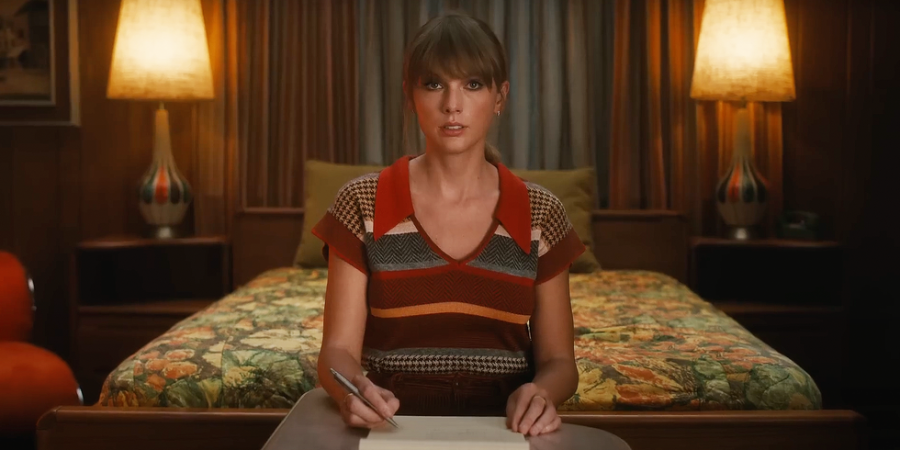“Anti-Hero” or Anti-Climactic?
December 12, 2022
In a world full of young girls idolizing female pop stars and celebrities, Taylor Swift is like God. Swift grew up as a country bumpkin from Pennsylvania with big dreams and an even bigger heart. She is special because she was just like the rest of us. Over the last fifteen years, she has risen to the top of the music industry and developed a reputation as one of the most talented and well-respected female music singers/songwriters in history. Needless to say, the release of her tenth studio album came with great expectations.
Swifties tore apart Midnight within the first few hours it was released. Vinyls were purchased, lyrics were memorized, and opinions were quickly formulated. The third track on the album, “Anti-Hero” was especially memorable for its questionable lyrics, including a fan favorite: “sometimes I feel like everybody is a sexy baby.” To the surprise of fans, Swift released a music video to accompany “Anti-Hero,” published on YouTube. The video left some readers feeling inspired but most, befuddled.
The dominant story line follows Swift and “the problem” – a larger-than-life version of the singer encouraging alcoholism and unhealthy coping mechanisms to combat body dysmorphia. The video features many fantasy elements including “magic,” unrealistic cloning, and “back from the dead” themes. While these elements help to lighten the mood from the ever-serious topic of body image, they also distract and take away from the main message of the song’s lyrics. Swift had ample opportunity to make a major change in the world of body neutrality, and she fell short as a result of the video’s cinematography.
The funeral scene is especially surprising, as Swift is featured rising from the dead to eavesdrop on her fighting family. Not only did this plot line come out of left field, but it was also completely unlike the previous story line and distracting once again to the overall message.
“Anti-Hero” came as an overwhelming missed opportunity to change the world of self-love for young girls struggling with body image. Swift prioritized entertainment while sacrificing motivation, thus taking the easy way out and falling short of what could have been a masterpiece.






